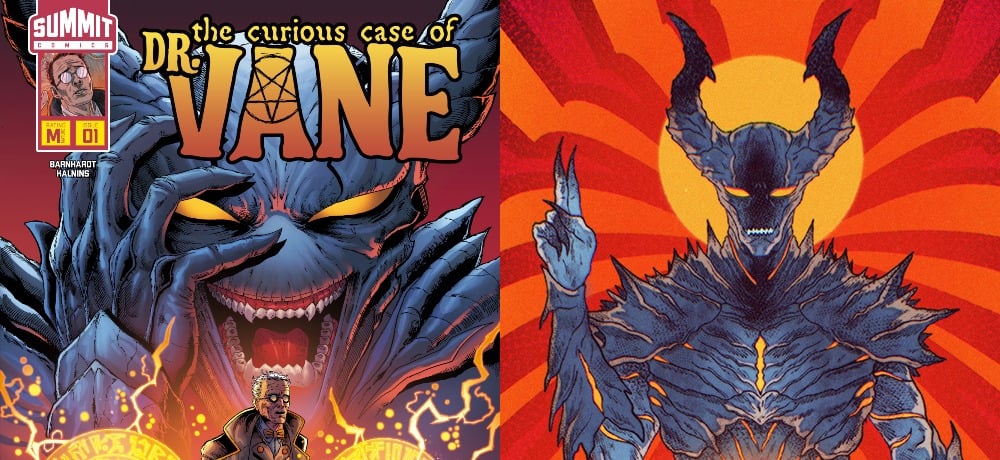





Now that Halloween season is over, it feels a little empty playing eerie soundtracks and revisiting favorite nightmares. The atmosphere just isn't quite there. But that's easily fixed, and few things build atmosphere more deftly than music. I've spent improper amounts of time trying to find artists who evoke the spirit of horror and Gothic fiction, but since music isn't a narrative genre by definition, it can be a nebulous process. Some musicians just go perfectly with certain storytellers, though. Here are five performers who complement a few of my favorite authors scarily well:
Clive Barker and Nick Cave and the Bad Seeds
Both hailing from England and rising to fame in the same decade, Barker and Cave seem like a duo destined for emotional evisceration. Barker’s stories evoke an urban landscape that's gritty and hard, but also full of transcendent wonder. His language is high, poetic, and epic; and combining that with stories of B-movie monsters and body horror motifs, he creates a world of awful, brutal magic fueled by very real agony. Particularly with his murder ballads, Cave draws from mythical literature and Gothic tropes to craft songs in that spirit—edged with metal but also rich, full of anger, and wonder. His deep, powerful voice calls out from a landscape of decayed passion.
While Barker’s narratives go to transgressive lengths that are hardly old-fashioned, his mythological undertones and baroque prose give his stories the aura of fable. With his modern settings and archaic themes mixing together so beautifully, Cave’s music seems like the perfect complement. As nighttime hymns to ecstasy and death roar through the room, Barker’s words can take on an even fierier life.
Angela Carter and Kate Bush
Carter’s stories explore Gothic worlds and folklore through a weird, modern edge.
Her romances are blatantly sexy, but not in a traditional way, sometimes it's frightening and enigmatic why they carry such a power—it’s in her gorgeous prose and high-intensity emotions, the inventiveness of the phrases that she twists to describe wondrous fantasies. She’s singular; as is experimental pop goddess Kate Bush, who has been imitated endlessly, but never replicated.
Bush’s music isn't sexual, persay, but its power is similarly nebulous. She sings anthems of souls overwhelmed by sensation, whether innocent or frightening or both; she achieves a baroque impact that Carter also employs in her stories. And considering that Bush became famous from a song about the dead Wuthering Heights heroine, the connection to Gothic literature is obvious. Bush’s operatic vocals and sprawling soundscapes may give Carter’s fairy tales even more dimension, creating a shared world of their own.
Shirley Jackson and Jesca Hoop
There are many moods within the fiction of Shirley Jackson, all nebulous and difficult to classify, but to me, she has always felt deeply rooted to folklore and mythology, as it erupts into the illogical space of suburban life. While Billie Holiday’s tragic, jazzy swagger may also make a nice (if ironic) pairing, contemporary singer/songwriter Jesca Hoop captures the creepy spirit more directly. Her subtly experimental backgrounds provide a landscape for her voice to flit and howl across, a phantasmal sound infused with strangely poetic lyrics.
More than just a soundtrack, though, Hoop’s songs give a vision of a playfully tormented spirit—innocence and darkness melded together. Shirley Jackson’s best work combines the same contradictory elements, the mundane and the horrible, the calm and the chaotic; blended together, they create an eternally haunting dissonance. Hoop’s unusual musical persona complements the psychological adventures that Jackson takes through primal dread, and gives them external life.
Thomas Ligotti and Terry Callier
Similarly to Jackson’s choice, this is very much a subjective pairing, though I think one worth trying. Ligotti’s stories exist in a world where puny humans come face to face with metaphysical nightmares in the most average of places; a movie theater, a suburban home, a poor man’s farm. He’s been aptly compared to David Lynch, who similarly upends a viewer’s sense of reality through the inversion of normal images—and Lynch is fond of jazz and soul.
In comes Terry Callier, a lesser-known but prolific musician who began as a folk singer, then added eerie jazz and soul motifs as his career progressed. Some of his songs like “Dancing Girl,” “I’m A Drifter,” or “Lazarus Man” combine folk structure, jazzy instrumentation, and Callier’s melancholic, passionate vocals to create a truly cosmic soundscape. Considering that he often sings about alienation and oppression in such a devastating manner, listening to him while reading a Ligotti story may lead to the ultimate catharsis, or just open a hole in the universe through which a monster will come. Either outcome deserves an experiment.
Stephen King and Bruce Springsteen
This one’s obvious: King uses Springsteen quotes in front of his novels all the time. And there’s a reason for this. Springsteen sings anthems of blue collar workers, the oppressed, the existentially terrified. His early music often draws from 1950s pop motifs, giving it a frustrated nostalgia that sometimes breaks into frenzy (which may be why it took almost ten years for him to become a superstar). Some of the songs are atonal and dissonant enough to hint at the grotesque more openly, even narrating events from within a killer’s broken mind.
As King combines grotesque images, reverential Americana, and tales of pastoral towns where human struggle takes on the same importance as monstrous battles (though not always with the same power), Springsteen’s music suggests the grandness of a ballad within the stories. His anthems of the trodden-upon classes emphasize the emotional undercurrents of King’s stories: that people fight, sometimes lose horrifically, but never at the cost of their selves.
---------
Are there any musicians who pair perfectly with your favorite horror author? Let us know in the comments!